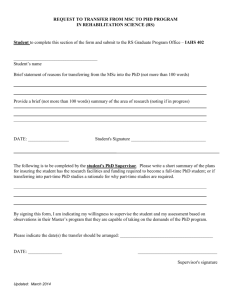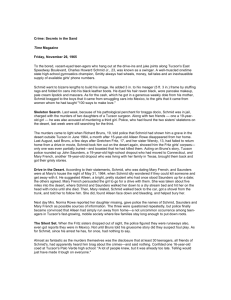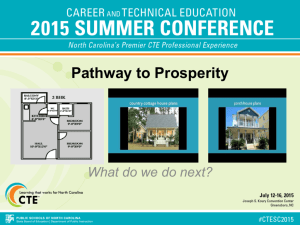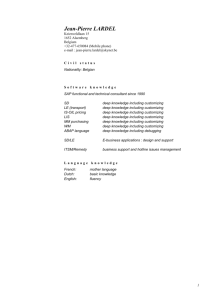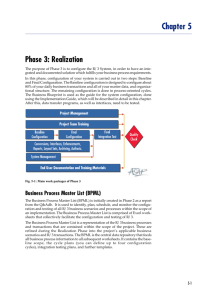1 Sandra Schmid Professor and Chair Department of Cell Biology
advertisement
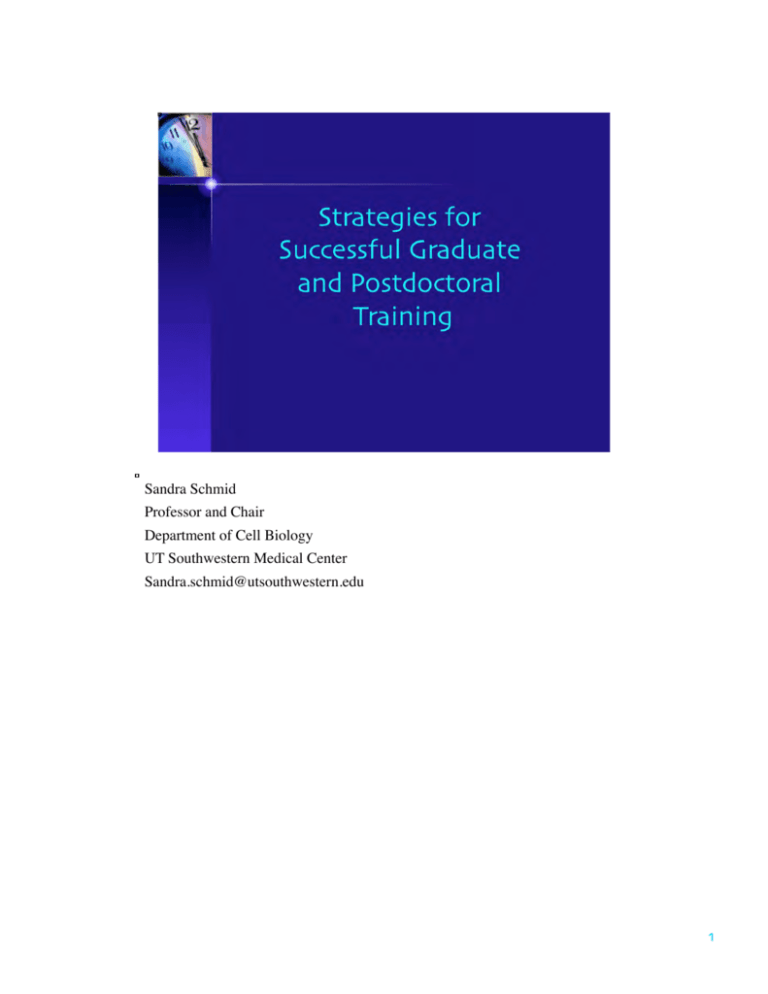
Sandra Schmid Professor and Chair Department of Cell Biology UT Southwestern Medical Center Sandra.schmid@utsouthwestern.edu 1 A great book, which I highly recommend. These are the crib notes. 2 With regard to keeping the end in mind. Many of you will not be working in research labs. Think about customizing your training and expectations to fit your specific career objectives. I think about how much better off we would be with more PhD politicians (like Angela Merkel), more PhD CEOs (think Goldman Sachs/Enron) more PhD industrialists (think BP Oil), ,journalists, etc., etc. Smarter decisions would be made. 3 The skills you acquire as a PhD are transferable and will ensure your success in any profession (I you want it and are willing to work for it). 4 This slides speaks to defining your customizing your training. You need to have this discussion with your advisors. 5 6 Self-assessment: What do you love doing, what are you UNIQUELY good at, what can you make a living doing. For picking science projects you also want to think about your competition and take advantage of the unique environment provided by your lab/department/institute. 7 “Red oceans” refer to crowded, competitive shark-infested waters. Try to identify blue ocean projects, career paths. 8 Businesses think about innovation as without it they will not be profitable. Science should also think about where innovation comes from and how we can create environments that foster it. 9 Tools for creative thinking 10 Your postdoctoral training is probably the most critical point in your career. During it you should decide your career track 11 Don’t forget the mentorship you can get by talking to more senior graduate students, postdocs, new assistant professors. Learn from their mistakes (you bet they made them). 12 For each new task, you will pass through these 4 stages of development. This is true for each new task Starting a new project, writing a paper, starting a new lab. We are all beginners over and over again. 13 Need to use different leadership/mentorship styles for different development levels. More or less directive. More or less supportive. (These are high and low, not ‘all’ or ‘none’ Find more details on iBiomagazine. 14 Everybody needs a coach to push them to greater heights. 15 Writing a fellowship early on in your project helps your mentor to be more directive. 16 17 If you string together a series of ‘base hits’ your overall scoring will be higher. Don’t be forced to put whole papers into the supplemental materials of a since Science paper. 18 You can’t establish your identity unless you talk to other people. This is also where good ideas come from (cross-fertilization, or the ‘adjacent possible’) 19 Do this with every paper you read, every seminar you attend, every group meeting and WIP. 20 Get practice. Write up your experiments as if they were descriptions of a result for a paper. Have your advisor (or peer mentor) read them 21 Check out iBioMagazine for this terrific talk. 22 23 Success in anything requires hard work. Think Thomas Edison “2% inspiration, 98% perspiration”. 24 25 26 Plan ahead. Talk to your advisor. Make sure you’re doing the right experiment in the right way, as best you can predict. 27 28 In most–not all–cases the extra year you spend getting your paper into Cell is wasting your time. You are doing experiments that you know the outcome of (trivial controls, incremental extensions) just to satisfy anonymous reviewers and inexperienced editors. You could be making the next discovery. Also it is demotivating. 29 Think about what distracts you and how many unimportant things you spend your time on. YOU define what’s important and work on it before it’s urgent. 30 31 32 The harder you work, the luckier you get!!! 33

